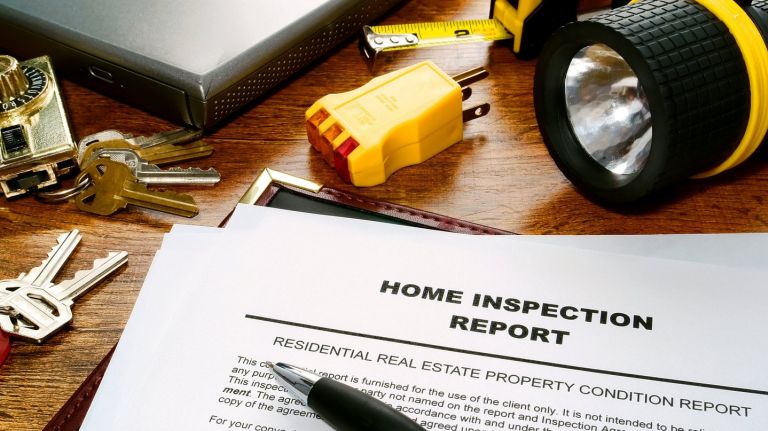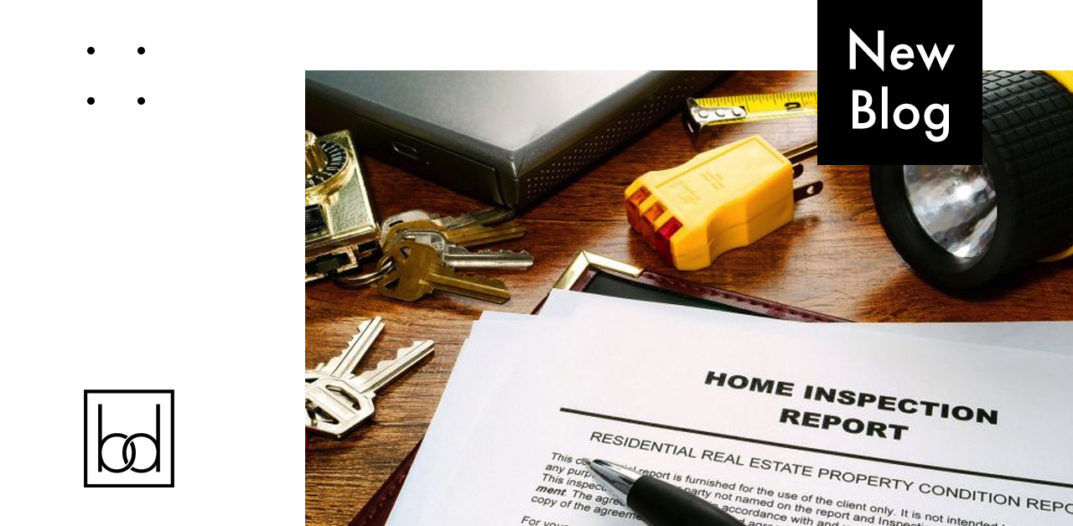
It’s a standard part of the process with every home purchase – having a thorough home inspection conducted buy a reliable inspection company. If you overlook the inspection, you could end up purchasing an endless money pit, full of serious issues that are not easily seen by the untrained eye. When you receive your home inspection report, you should immediately review all noted items with your real estate agent. You will work together with your agent to decide which items you will ask the seller to fix, and which issues are not as high a priority.
Here’s the tricky part though. Ask for too much and you risk losing out on the home, but if you ask for too little, you could end up spending a lot of money on repairs later. Likewise, if you are the seller, you must decide which items you are willing to address, and which you prefer to sell “as is.” The following are some items that show up rather often on home inspection reports. If you are the purchaser, these are the issues you should be willing to fight for in your negotiations. Meanwhile if you are the seller, these are the commonly found flaws that you may want to take care of before even putting your home on the market.
Crawl Spaces
Homes built on crawl spaces have specific issues that can arise, that are different from homes that are built on a basement or slab. Since a crawl space does not contain functional, livable space, it may be something you don’t think of very often, but it is still an important part of a home’s foundation. Moisture issues are common with crawl spaces, and moisture can eventually lead to mold. If a crawl space problem comes up on a home inspection report, a good moisture barrier or encapsulation might be necessary. If you purchase a home with a crawl space, even after known issues are remedied, it is important that you check the space periodically, especially after heavy rains to ensure it is staying dry.
Electrical
You might think that you can handle minor electrical repairs yourself, but unless you are an expert, electrical work can be tricky and intimidating, and when homeowners attempt to take care of such things themselves, it doesn’t always turn out well. Even if an issue seems minor to you, it is best that any electrical issues found on a home inspection report be checked out by a licensed electrician. Request this specialized recheck in your negotiations.
Gutters/Downspouts
They may not seem like an important part of a home inspection report, but properly functioning gutters and downspouts are more important than you think. If these fixtures become clogged, excess water can build up at the home’s foundation. There should be no clogs, and no seam/seal leaks. If the home you’re looking at doesn’t already have downspout extensions, consider adding them yourself after the sale, as these extensions help keep flowing water as far away from the home’s foundation as possible.
Fire Safety
Did you know that smoke detectors need to be replaced every 10 years? Just changing the batteries isn’t enough, as over time the part of the fixture that detects smoke begins to degrade. Dryer vents are also potentially dangerous if not maintained correctly. The vent to your dryer should be cleaned annually to make sure there is no build up that could lead to a fire. If these items are mentioned on the home inspection report, it is fine to leave them out of negotiations, but you must give your attention to them as soon as the home is yours.
For any other questions you may have about the issues found on your home inspection report, it is a great idea to discuss with your agent and allow them to help you decide what you should and should not fight for. They have years of experience with these negotiations and will be able to point you in the right direction.

